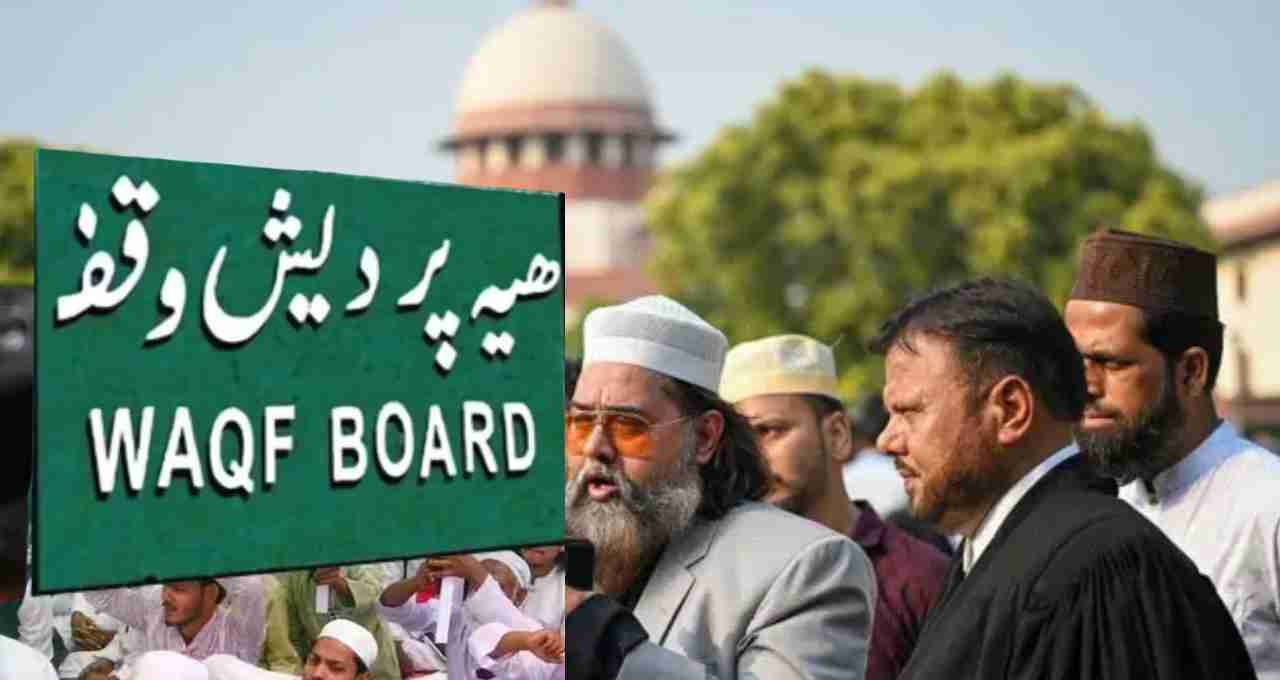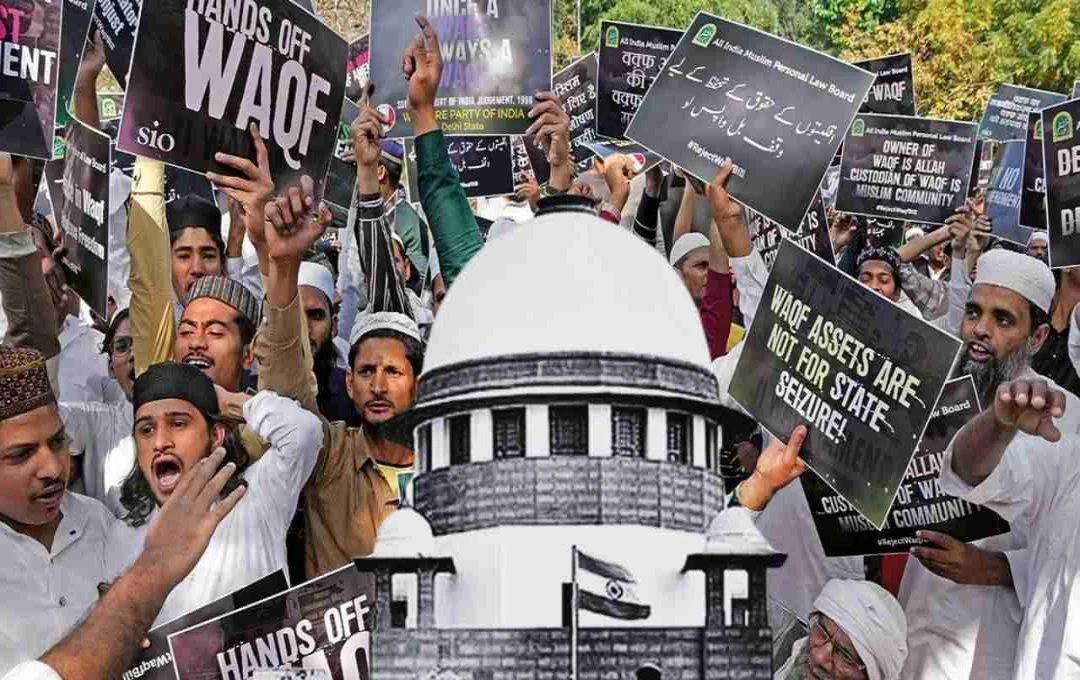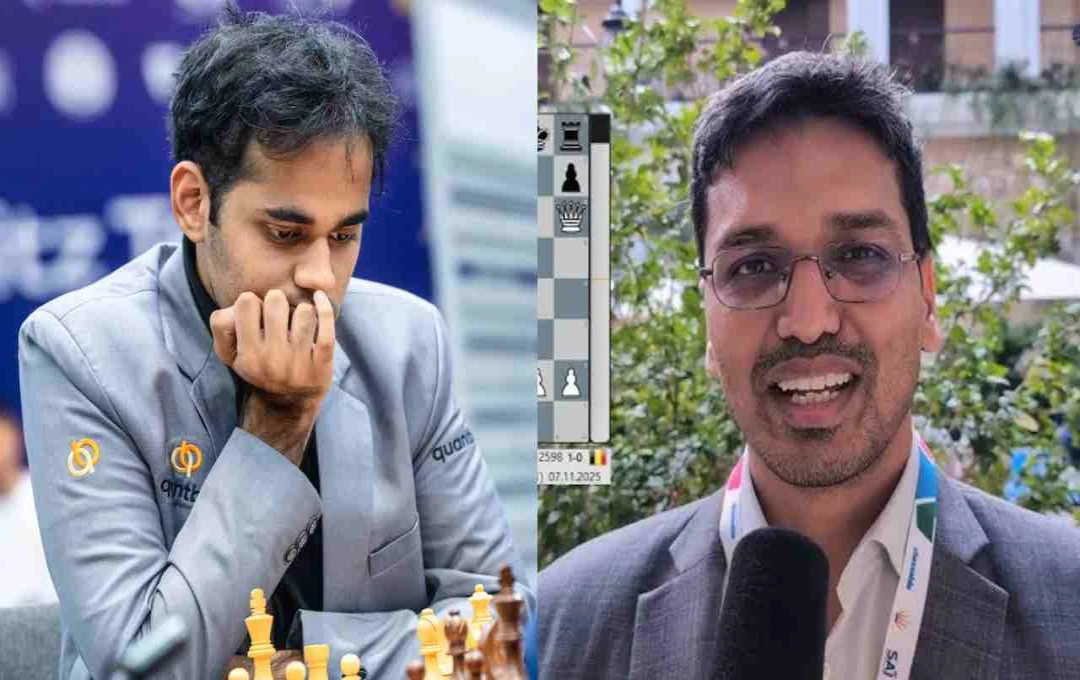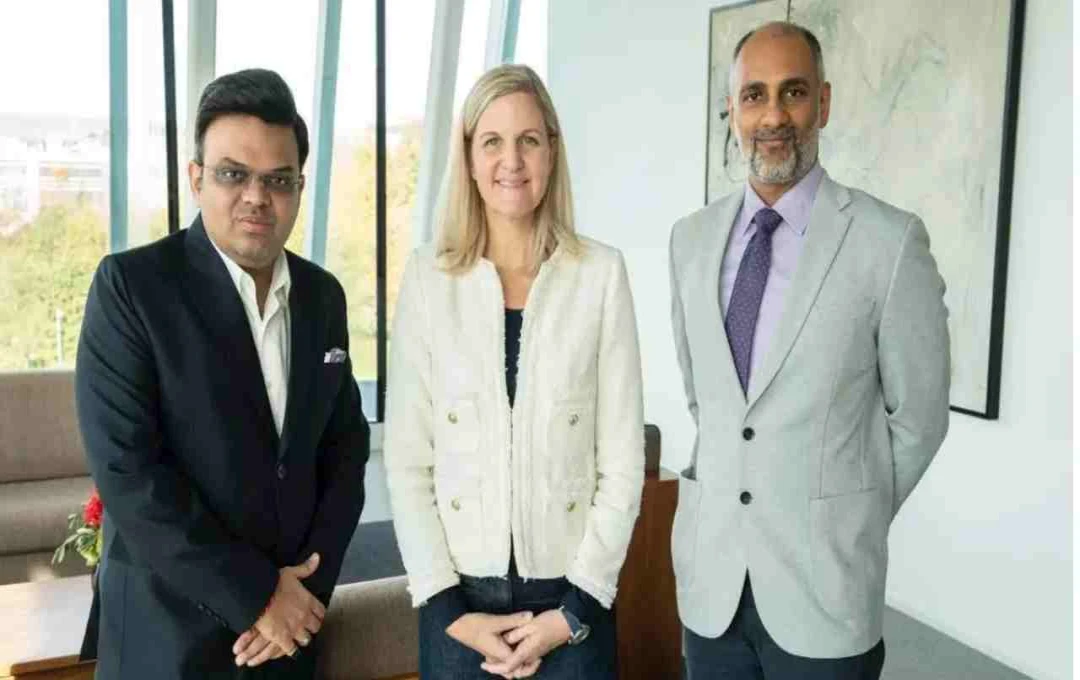Supreme Court delivers verdict on Waqf law. Non-Muslims can be appointed to the post of CEO of the Board. Interim stay imposed on the condition of five years of adherence to Islam and some controversial provisions.
New Delhi: The Supreme Court delivered a significant verdict on the Waqf law on Monday, September 15, 2025. The court stated that there is no need to stay the entire law, but an interim stay has been imposed on certain provisions. The Supreme Court clarified that there is no bar on appointing a non-Muslim to the post of CEO of the Waqf Board. However, the court also stated that as far as possible, the Chief Executive Officer of the Waqf Board should be a Muslim.
Supreme Court's Order
The Supreme Court bench, comprising Chief Justice Bhushan Ramkrishna Gavai and Justice Augustine George Masih, while pronouncing the interim order, stated that the constitutionality of the Waqf law has been recognized in the constitution itself. The court said that there is no case for staying the entire law.
The court imposed a stay on certain provisions, including the provision that only a person who has been adhering to Islam for the past five years is permitted to create a Waqf. Furthermore, the provision for government officials or collectors to decide land disputes has also been temporarily stayed. The court stated that this stay will remain in effect until a final decision is reached on the petitions challenging the law.
Waqf Board and Non-Muslim Members
The Supreme Court also clarified that the number of non-Muslim members in the Waqf Board and the Central Waqf Council will be limited. Out of the 22 members of the Central Waqf Council, only four can be non-Muslims. Similarly, out of the 11 members of the State Waqf Boards, only three non-Muslims can be appointed.
CJI Gavai directed that, as far as possible, the Chief Executive Officer of the State Waqf Board should be a Muslim. However, the court has not stayed the amendment allowing the appointment of a non-Muslim as CEO. This means that non-Muslims can also be Chief Executive Officers under the law, but preference should be given to Muslim candidates.
Stay on the Five-Year Adherence to Islam Condition

The Supreme Court has stayed the provision of the Waqf law which stated that only a person who has been adhering to Islam for the past five years can create a Waqf. The court said that the stay on this provision will remain until a final decision is reached on the petitions.
This decision is a significant step towards reducing controversies surrounding certain parts of the Waqf law. The court stated that this stay does not affect the constitutionality of the law but is merely a temporary halt on controversial provisions.
Land Disputes and Government Officials
The Supreme Court also stated that in disputes concerning Waqf properties, government officials or collectors cannot decide whether the property is an encroachment on government land or not. The court has imposed this stay until the respective High Courts deliver their judgments.
Chief Justice Gavai remarked that the removal of Section 108A of the old Waqf law was not incorrect. This provision was intended to place the Waqf Act above other laws. The court also clarified that no stay has been imposed on the provision protecting lands belonging to tribal communities.
Registration of Waqf Property
The Supreme Court clarified that the provision for the registration of Waqf properties is already in effect and there is no stay on it. However, for properties that are under dispute, no third-party rights will be created until a decision from the High Court is received.
The court stated that the protection and management of properties under the Waqf law will continue. The court also added that the State Waqf Boards and the Central Waqf Council must adhere to constitutionality and judicial directives in their decisions.
Function of the Waqf Board
The primary function of the Waqf Board is to manage properties for charitable and social purposes under Islamic religious law. This includes the use of properties for religious sites, schools, hospitals, and social programs. The Supreme Court's order has made it clear that regardless of whether the members of the Board are Muslim or non-Muslim, they will be bound to follow the law and religious tenets.















